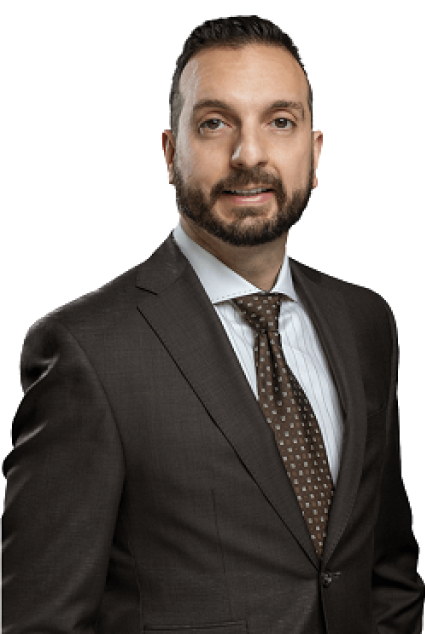Medical Malpractice in Ontario
As Canadians, we share a strong belief in our outstanding healthcare system, and place well-deserved trust in the skill, professionalism, and integrity of our physicians and medical professionals.
Unfortunately, no one can guarantee that your surgery will proceed as planned, or that my procedure will be successful. Things can, and do, go wrong, leading to failed or partially successful surgeries, post-operative trauma and complications, or other unintended harm. In most cases, these negative consequences happen despite the preparation, attention to detail, and sound judgement of our physicians, nurses, and staff.
Sometimes, though, these injuries or poor outcomes could have been avoided and were caused by a type of negligence called medical malpractice – the acts, omissions, decisions, policies, and practices of doctors, nurses, hospital administrators, and other medical professionals that simply should not have happened. And this is where a medical malpractice lawyer can help.

At Campisi, our first priority is to invest our expertise, time and resources into getting you and your family the timely, quality care you deserve.
What you need to know - Suing for Medical Malpractice
In Ontario, you can sue for medical malpractice, which means an at-fault person can be held liable to compensate you for the losses you suffer because of their negligence.
The money you can get from the court for your injuries is called damages. There are two kinds of damages - pecuniary and non-pecuniary. Pecuniary damages are things like lost income now and in the future, and costs of care you'll need because of the injury. Non-pecuniary damages are for the pain and suffering you go through because of the injury. The court awards both types to try to make up for what you lost or went through.
You can only recover the amounts you have lost or are likely to lose in the future. Even if you can show that the healthcare practitioner’s negligence caused your injuries, your claim can only be worth as much as you might be proven at trial. Because medical malpractice lawsuits are usually challenging, as well as expensive and time-consuming, in some cases the potential compensation can be too small to make suing your doctor the prudent choice.
Medical malpractice lawsuits are complex, relying upon extremely technical evidence. It can take many years to prepare a winning case. Also, the Ontario Medical Association (OMA), the organization responsible for protecting the integrity of the profession, fully investigates each legal claim against its members and will resolutely defend any lawsuit when it does not believe that medical negligence was the cause of your injuries. Because of these factors, if you or a loved one has suffered injuries that could have been caused by medical malpractice, it is important to discuss your case with an experienced, knowledgeable, and compassionate personal injury law firm. At Campisi LLP, we take the time to explain a reasonable range of damages you could recover before you make the best decision for you and your family.
Establishing Medical Malpractice
In Ontario, medical malpractice happens when a healthcare practitioner fails to meet the standard of care expected of them based on their training, experience, and other factors, causing harm or injury to the patient. To succeed in a negligence lawsuit against your healthcare practitioner, you must establish all the following:
Standard of Care: The standard of care is objective and is based on what a reasonably competent practitioner in the same field would do in similar circumstances. So, for instance, an obstetrician practicing at a prestigious teaching hospital in a large urban centre would probably be held to a higher standard than could reasonably be expected of a gynecologist in a remote area faced with an emergency C-section. However, both are medical specialists who should share most of the required medical training, knowledge, and skill to perform the procedure.
Breach of the Standard of Care: After you have determined the standard of care that applies to your case, you must demonstrate that the responsible party breached this standard. If the objectively reasonable standard of care is met, there is no negligence regardless of any diagnostic errors, unfortunate choices, or surgical mistakes, which “could have happened to anyone.” In the C-section example, if the gynecological surgeon injured the baby by cutting too deeply into the mother’s uterus, there could be grounds to start a lawsuit.
Causation: Having identified a potential breach of the standard of care, you must also demonstrate that this negligence directly caused the harm you suffered, or that it was a material contributing cause and your outcome would have been better but for the negligent conduct. If a properly performed C-section incision would or could have meant that the injured baby did not suffer the harm, causation can be demonstrated at trial.
Potential Breaches
Some of the most common types of medical negligence happen when the standard of care is breached in the following areas:
Failure to receive Informed Consent: As discussed in the sidebar urological example, healthcare practitioners in Ontario are required to obtain informed consent from their patients before performing medical procedures or treatments. This can include everyday health matters like administering flu shots, prescribing medications, or giving a therapeutic massage. As a patient, you usually will not be aware of the full scope of treatment options, risks/benefits and so on – you rely upon your providers as experts to guide you appropriately. Situations when you might have made a different choice that was not presented to you often support successful medical negligence claims.
Failure to Diagnose or Misdiagnosis: As an expert in their fields, your healthcare practitioners are expected to exercise clinical judgement based on their knowledge, appropriate investigations, and research, to provide you with a medically sound diagnosis. Failure to diagnose a condition correctly or in a timely manner, or failure to revise a diagnosis based on new evidence often establishes the basis for a successful medical negligence lawsuit.
Medication Errors: Your family physician and all prescribing specialists are expected to understand the impact of the medications they prescribe, including the interactions that can happen with your other prescriptions before adding a new drug to your existing medication regime. Obviously, as more and more medications hit the shelves, the risk of mis- or overprescribing, or intermingling potentially dangerous drugs in your system is always present and ever-increasing. When in doubt, your physician should consult a pharmacist, or perform the research required to ensure you are reasonably safe. Administering an inappropriate or incorrect medication, providing the incorrect dosage, or failing to monitor your reaction to prescribed medication can be grounds for a medical negligence claim, which might also implicate the responsible pharmacist.
Surgical Errors: Surgical procedures carry inherent risks, many of which are understood as acceptable given the potential benefits or lack of non-surgical options. And, although we can expect our surgeons to perform to a high professional standard, it would not fair to demand perfection. However, avoidable errors made during surgery can lead to a finding of negligence. Examples can include: operating with substandard technical skill or while impaired (by drugs, alcohol, fatigue, medical or psychological conditions…), performing the wrong procedure, operating on the wrong body part, failing to identify sites of internal bleeding prior to closing, leaving surgical instruments inside a patient, and providing inadequate post-operative care.
Negligent Postoperative Care: After surgery or medical treatment, healthcare providers must provide appropriate ongoing care for as long as is required to ensure your safety and optimum recovery. Far too often, patients suffer from post-operative negligence including: premature discharge or discharge without adequate instructions, failure to perform appropriate post-procedural assessments or investigations, failure to identify and treat complications, ongoing symptoms, or concerns, and inadequate wound care.
What You Need to Do
Generally, Ontarians have two years from the date of injury to start a lawsuit. This general rule is subject to limited exceptions, and to a legal principle called discoverability.
Discoverability modifies the limitation period so that we usually have two years from the date we knew or ought to have known about the grounds for a claim against the negligent party. If you reasonably suspect that you have suffered harm because of medical malpractice, you should consult with a reputable personal injury lawyer with expertise in complex professional negligence claims at your earliest opportunity.
How Campisi can help
At Campisi LLP, we can help you evaluate and advise you on your medical malpractice claim.
We will always give you realistic and clear advice that you can trust. Remember, it is important to act promptly, so that you do not miss the opportunity to seek the just compensation you deserve for injuries and losses caused by experts you entrusted with your health and future.
We are available 7 days a week to answer your questions, provide legal advice and help you and your family through difficult times.
How Campisi can help
At Campisi LLP, we can help you evaluate and advise you on your medical malpractice claim.
We will always give you realistic and clear advice that you can trust. Remember, it is important to act promptly, so that you do not miss the opportunity to seek the just compensation you deserve for injuries and losses caused by experts you entrusted with your health and future.
We are available 7 days a week to answer your questions, provide legal advice and help you and your family through difficult times.
For a full explanation of how Campisi can support you in your claim, please refer this blog post or guide which details what you can expect.
how campisi helps

Standard of Care Example
For example, the standard of care for treatment of prostate cancer includes active surveillance or “watchful waiting” – a form of expectant management that can be effective for men with limited life expectancy and slow-growing, low-risk disease. If you had both a limited life expectancy and slow-growing, low-risk prostate cancer (or either, potentially) your urologist would be expected to explain watchful waiting to you as one of the options for you to consider. If the urologist only offered more invasive treatment options like radiation and surgery, they presumptively would be in breach of the standard of care expected of a practicing specialist providing a prostate cancer treatment consultation in Ontario.
It is important to bear in mind that a potential breach could happen at any stage, or more than one stage, of a procedure. In the Urology scenario, for instance, the above-described breach relates to the legal concept of informed consent, which means you must be presented with risks, benefits, and all medically indicated alternatives before you make important medical decisions. Suppose you choose the surgical option. You could suffer permanent nerve damage because of a sloppy incision during surgery, and/or you could develop sepsis because the surgical field was not sterilized properly.
If your urologist did not explain watchful waiting to you, but you would have chosen immediately to proceed with surgery even if they had met their informed consent obligation, you would not succeed in your medical malpractice lawsuit by relying on this breach – even if your injuries were caused by the surgery. Instead, you would need to prove that the urologist failed to meet the surgical standard of care.
Put our expertise to work for you.
If you or a loved one has been seriously injured, you need a personal injury lawyer who puts client care first and who also knows how to navigate the complex legal system.
Contact Us NowPersonal Injury Law Firm for the Seriously Injured
At Campisi, we care fiercely for our clients, giving them the support they need and winning the settlements they deserve. If you've been injured or hospitalized due to an accident in Ontario, it is important that you know your rights and get the best legal representation possible. Contact us now for immediate support.
CONTACT US NOW

.jpg?width=723&height=402&name=Rectangle%2084%20(1).jpg)
Why Choose Campisi?
A champion with heart
When you’re a victim of an accident, everything can seem upside down. You need someone who cares enough to help you through the process, but also someone who’s strong enough to battle tirelessly on your behalf. You need an advocate with a heart.
We guarantee to always put your future first
You don’t pay for anything until your case is won or settled. We treat you as we would our family, making ourselves available 7 days a week to guide you through these difficult times. We are selective when taking on new clients so that you receive the attention you deserve, and the commitment to win your case.
Campisi is head of the class
At Campisi LLP, you and your family are in good hands. Our Managing Partner is not only an exemplary personal injury lawyer, he is a professor of Insurance Law at York University’s Osgoode Hall Law School. He has been recognized in the 2022 edition of Best Lawyers® in Canada for Personal Injury Litigation, a highly respected resource for both clients and professionals. Our lawyers have successfully represented thousands of clients with serious injuries like yours, and will use their extensive knowledge of the law, the medicine and the insurance system to win your case.

